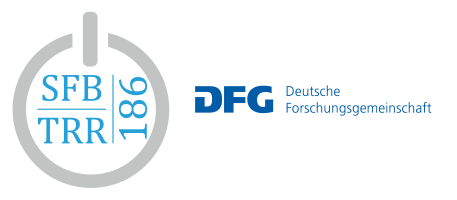Switching antigens by the exchange catalyst HLA-DM
Antigen presentation by proteins of the major histocompatibility complex (MHC) is a prerequisite for T cell mediated immune responses. Of the two major classes, MHC class II (MHCII) molecules are able to activate CD4 T cells, which in turn foster immune reactivity by assisting B cells, macrophages and other immune cells to exert their function in response to pathogen. For an antigenic peptide to be presented by MHCII molecules, they typically are processed in the acidic environment of the late endosomal or lysosomal compartment, where the exchange catalyst HLA-DM is operative. The placeholder peptide CLIP, derived by cathepsin digestion from the chaperoning invariant chain (CD74), eventually gets replaced by high affine and/or highly abundant peptides that result from the proteolysis of pathogenic protein or self-protein. Thus HLA-DM acts as a molecular switch that shapes the so-called immunopeptidome, with profound consequences for the immune responses against pathogen or self. Interestingly, this switching of peptide identity by HLA-DM is modulated by the polymorphisms found in the many different MHCII variants that exist within the human population. While we have investigated the influence of polymorphisms of CLIP-bound HLA-DRB1 allotypes on HLA-DM susceptibilities, in the current funding period, we will now focus on the analysis of self-antigens relevant to autoimmune diseases. Specifically, citrullinated peptides have been reported to bind with high affinity to allotypes that are associated with rheumatoid arthritis (RA), but it is not known whether the dynamics and HLA-DM susceptibilities of the corresponding autoantigen-MHCII complexes impinges on their association with autoimmunity. We will combine experiments with mathematical modeling to arrive at mechanistic insights for catalyzed exchange for these antigens that serve as switch-on signals for T cell activation. Through the construction of DM-MHCII complexes of different affinities and activities we will investigate in how far we can tune the system towards a focused, high affine peptide repertoire. Comparison of the immunopeptidomes of cells transfected with no DM and mutant DM either attenuating or augmenting activity are expected to unravel the changes in self-antigen presentation for each of the disease-associated allotypes. The analysis of the respective self-repertoires by computational modeling will integrate data obtained for the isolated components (MHCII, DM, distinct peptides) and will allow us to dissect cellular DM susceptibilities for the MHCII display of citrullinated peptides and other reported autoantigens. Thus, the project will link quantitative insight on the molecular mechanisms of MHCII antigen loading to cellular phenotypes driving autoimmune disease.
Prof. Dr. Christian Freund (FU Berlin)
Prof. Dr. Thomas Höfer (DKFZ Heidelberg)
